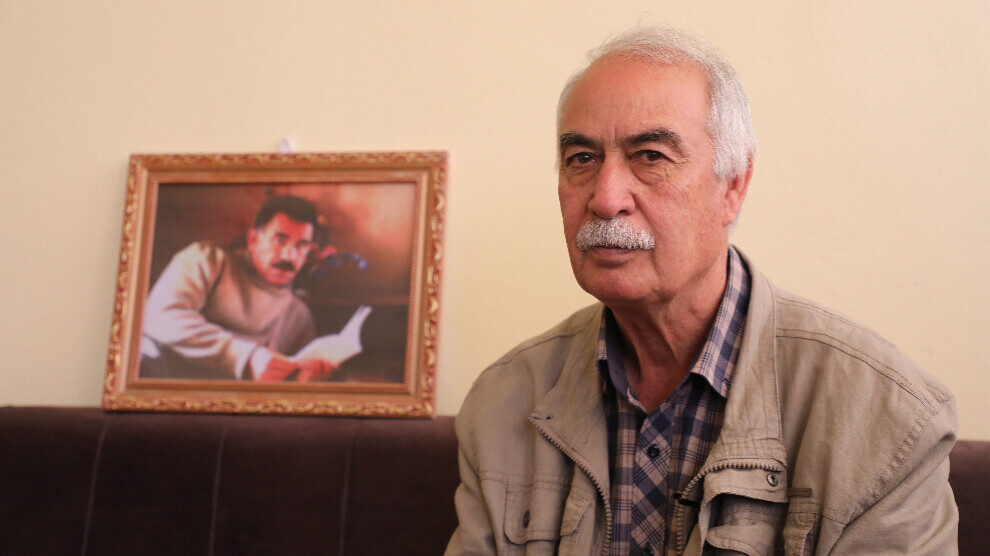Kose: After meeting Abdullah Öcalan we never stopped working
Ebdilkerim Kose from Hesekê said that he met the PKK in 1987 and Kurdish people's leader Abdullah Öcalan on 27 November 1994. From that day, he worked for the movement.
Ebdilkerim Kose from Hesekê said that he met the PKK in 1987 and Kurdish people's leader Abdullah Öcalan on 27 November 1994. From that day, he worked for the movement.

Rojava patriot Ebdilkerim Kose spoke to ANF about his meeting with the PKK and the Kurdish people's leader Abdullah Öcalan and the impact this had on him.
Ebdilkerim Kose is from the city of Hesekê. He recalled the home visits by those who carried out organizational activities in 1987. “When friends came to Rojava, the door of our house was opened to more Kurds. We bonded after getting to know the party. The behaviour and style of friends affected me and my family a lot. In a short time, we carried out people's work together. At that time, we were going not only to Kurds, but also to Christians and other peoples."
Meeting with Öcalan on the anniversary of the founding of the party
Ebdilkerim Kose said that he met Kurdish people's leader Abdullah Öcalan on the occasion of the foundation anniversary of the PKK and continued as follows: “I saw Leader Öcalan on 27 November 1994 in Lebanon. Together with a group of my friends, we went to see him on the anniversary of the establishment of the PKK. On the way, we were discussing what to ask him. In fact, there was no need for all the planning we did. He explained all the question marks, problems, the reality of society and the situation of the people of Rojava without the need for us to explain. He both discussed the problems and asked about solution options.”
Change after the meeting
Ebdilkerim Kose talked about the changes in his life after the meeting with Abdullah Öcalan. "In any action, at any time, we could see that he was the people. He was a leader with a vision. Even if we did not reach this level of meaning in the 90s, his views from those years are now appearing one by one. He was saying that we need the brotherhood and unity of peoples in the 90s, and he stated that the liberation of the oppressed peoples passed together. Further devotion developed after meeting with the leadership. We started to spread the mass work more strongly to our friends, our family, our village and city. In this way, our political and organizational activities expanded.”
Kose added: “We were tied to our land. Fear of the regime was no longer as effective as before. The Kurds were now organizing and thus a sense of courage grew. Meeting with the leadership increased our level of conscience. Therefore, we no longer cared about the arrests and repression by the regime. More precisely, there was fear, but we put it aside. Our determination, courage and commitment to speak also grew.”
Kose continued: “We cannot say that we fully understood the Leader's paradigm, but we tried to implement it as much as we understood. His ideas appealed to humanity. It was true. It was the idea of the oppressed peoples. Not only the Kurds, but also the Arab and Christian people adopted his ideas, listened to his tapes and read what he wrote. They even tried to create spaces for discussion. If the Democratic Nation project was implemented in Rojava today, the impact of the activities carried out at that time would be enormous.”
All people want their freedom
Pointing out the importance of making the ideas of Kurdish people's leader Abdullah Öcalan reach more people than before, Kose added: “I am not the only one saying this. Our Arab, Armenian and other brothers accept the Leader's ideas. The Kurdish, Arab, Assyrian, Armenian and Assyrian people want his freedom. Peoples adopting the Leader’s paradigm are pursuing the cause of the brotherhood of peoples. Leader Öcalan left such a legacy to humanity.”